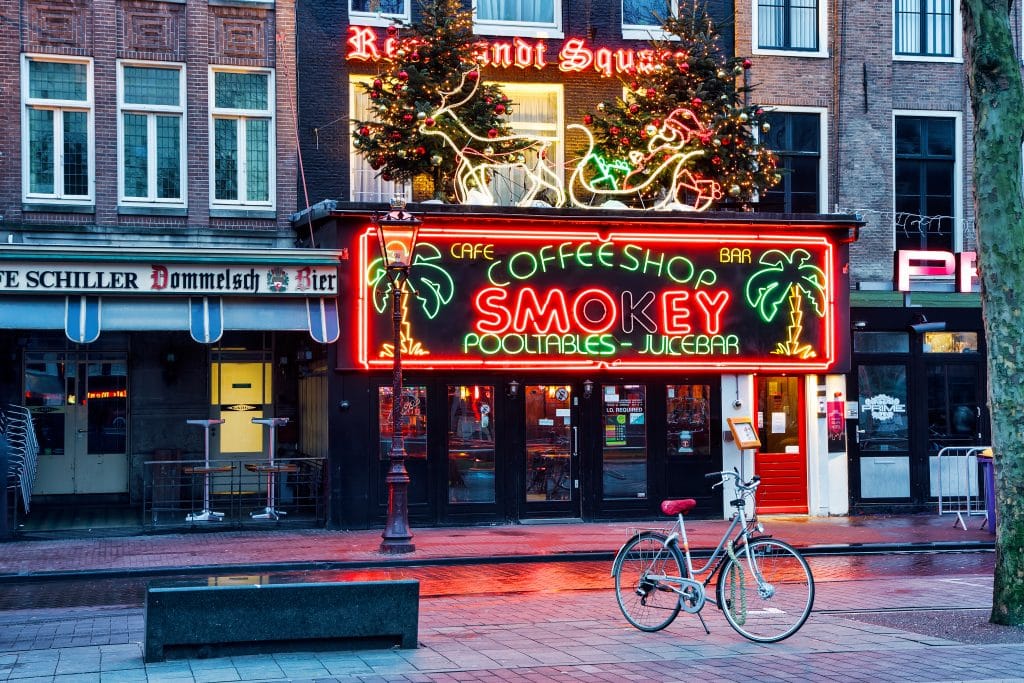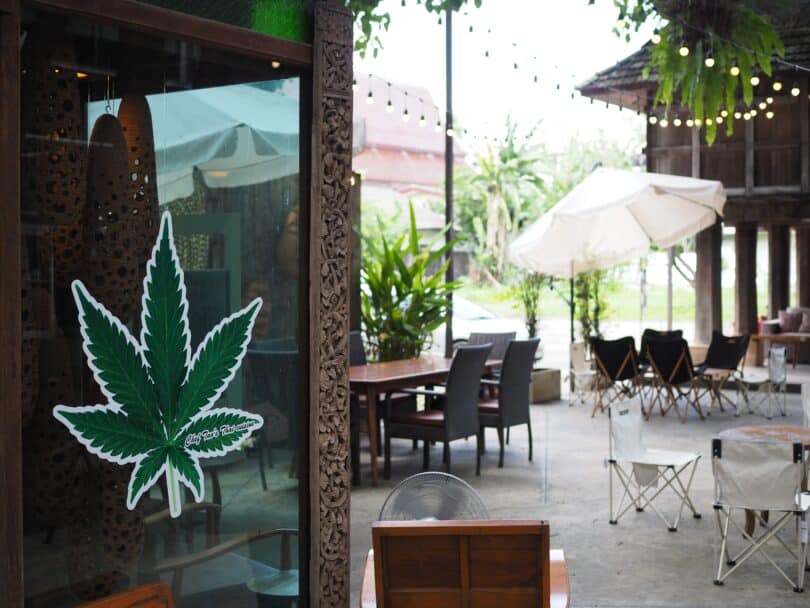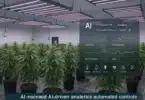Although the golden state does have legal “smoke lounges”, where shoppers can buy their weed for on-site consumption, they are few and far between. And for the most part, they more resemble a break area at a retail store rather than a relaxing place to hang out and get stoned. But Amsterdam-style cannabis cafes that serve coffee, snacks, and offer live music and other entertainment while patrons get high, may be the next big thing in the works for California.
What’s the news?
A bill to legalize cannabis cafes in California is headed to the governor’s desk. Last week, the Senate passed a slightly amended version of the legislation with a 48-7 vote, and now it’s off to Governor Gavin Newsom (D) for a final signature. Newsom has not yet commented publicly on his plans with the legislation, but as a longtime supporter of cannabis reform, it’s very likely that he will pass it.
AB 347 would allow local dispensaries that also have authorization to operate on-site consumption lounges, will now have the option to prepare and sell their own, non-cannabis infused food and beverages at their place of establishment. While the bill would allow both retailers and microbusinesses throughout California to sell freshly prepared food and drinks, only retailers will be allowed to sell prepackaged products at these cannabis cafes.
The revision mentioned above emphasizes that hemp-based foods are considered cannabis-infused, and thus, would not be allowed to be served at the cannabis cafes, which is in line with some recent updates to general cannabis regulations in California anyway. AB 347 also authorizes live music and other types of performances, plus the sale of tickets to these events. The sale/consumption of alcohol and tobacco will continue to be prohibited. It also states that non-cannabis items “shall be stored and displayed separately and distinctly from all cannabis and cannabis products present on the premises.”
Some dispensaries have already found creative workarounds to allow on-site consumption while serving food, but usually it’s for some type of event like a 420 party where they would promote products, offer something simple like tacos to eat, and have an area where people can smoke, play games, participate in raffles, and so on. But these are occasional and, as far as I’ve noticed, the few consumption lounges I’ve been to don’t offer food on a regular basis.
Some background on cannabis in California
As one the nation’s most liberal strongholds, it’s no surprise that California is has always been at the forefront of cannabis trends. In 1996, the state became the first to legalize medical marijuana under Prop 215. Less than two years later, Washington, Oregon, Alaska, and Nevada passed their own medical cannabis initiatives.

Then in 2016, a voter-led initiative (Prop 64) to legalize recreational cannabis for anyone over the age of 21 passed with 57% of the vote. The full name of the bill is the Control, Regulate, and Tax Adult Use of Marijuana Act. While the bill seemed popular among voters, a lot of legacy operators in the industry were against full legalization because they knew that high fees and taxes, coupled with endless hoops to jump through, would kill a good portion of the industry.
Unfortunately, they were right as California has had a difficult go of it in the legal cannabis realm. Starting with statewide pot shortages in the beginning, to a $100 million bailout a couple years ago, ridiculously high taxes and operating costs, insane levels of overproduction during the last couple years that are driving market prices into the dirt, stiff competition from the illicit market, and now, a viroid that’s destroying crops at an alarming rate – it seems like the ‘Golden State’ just can’t seem to get it right.
One thing they do seem to be on track with is attempting to lower taxes, which, keeping in line with California standards, are among the highest in the nation. And this isn’t just a proposal, but an approved legal change implemented at the end of June, 2022, as part of a statewide budget agreement (AB 195). The bill will create a credit tax system, expand labor rights among industry operators, change who collects excise tax, eliminate cultivation tax, and increase enforcement measures against unlicensed operators.
Regardless of all their struggles, California is still, by far, the largest cannabis market in the world. They’re expected to rake in around $5.9 billion in legal recreational and medical sales by the end of 2023, and that doesn’t account for possible billions more in black market sales. It’s one of California’s leading agricultural products, following behind only dairy products and grapes.
Are Amsterdam coffee shops still a thing?
As an older millennial stoner born in 1990, no state had yet legalized weed for recreational use, not even California. So I grew up hearing tales of a magical land far away where drugs where legal and you could stroll into a coffee shop on any day of the week to buy some snacks and high-quality weed. This fairy tale-like place was Amsterdam, and me and all my friends daydreamed about visiting one day.
Naturally, this bill had me thinking about what’s been going on in Amsterdam lately. Do the coffee shops still exist? If so, are they still as popular as they once were? Amsterdam has 160 coffeeshops, where tourists and locals can purchase a wide range of cannabis products, as well as a bunch of smart shops which sell psychedelic products, mainly magic truffles. The Netherlands rakes in around 400 million euros annual from their coffee shop tax, so needless to say, drug tourism provides a huge boost to the local economy.

But at what cost? In recent years, government officials say that the negatives so far outweigh the positives, that drug tourism may have to end altogether. Although that really just seems like blowing smoke, since it’s unlikely they’ll be able to stop it entirely, we can expect to see some changes to how their entire system operates in the near future. The Mayor of Amsterdam, Femke Halsema, has decided that she will make it her goal to change the way the city works. She fears that many locals have moved out of the center due to the disruptive nature of the tourism industry.
She says: “People come to Amsterdam because of the tolerance but show behavior we cannot tolerate, behavior we should call immoral, that they wouldn’t show at home… They come to Amsterdam, they drink too much, they get stoned, do not reserve a hotel but stay out all night, they humiliate the sex workers, and they make a lot of noise… So for the people living in the inner city, it’s not livable anymore.”
Although the government has tried before to get a handle on drug tourism in the area, nothing has stuck yet. So now, officials are proposing a new round of ideas that they think might improve the situation. For example: limiting who can enter coffee shops to residents of the Netherlands, as well as reducing the number of coffeeshops from 166 to 73 by the year 2025.
Final thoughts
How long will it take before we can actually see this plan for cannabis cafes come to fruition? It’s hard to say, but honestly, it probably won’t take very long after the bill is signed for at least a few to pop up in some of the state’s larger cities. All I know is, I’ll be checking one out and reporting back to our readers as soon as they open their doors!
Welcome cannabis aficionados! Thanks for making your way to Cannadelics.com, an independent news site going deep into the worlds of cannabis, psychedelics, and well beyond. We’re big on updates, so come by regularly. And get yourself signed up to the Cannadelics Weekly Newsletter, for the best in related product offerings, as well.








Truly, this has been long due and welcomed!